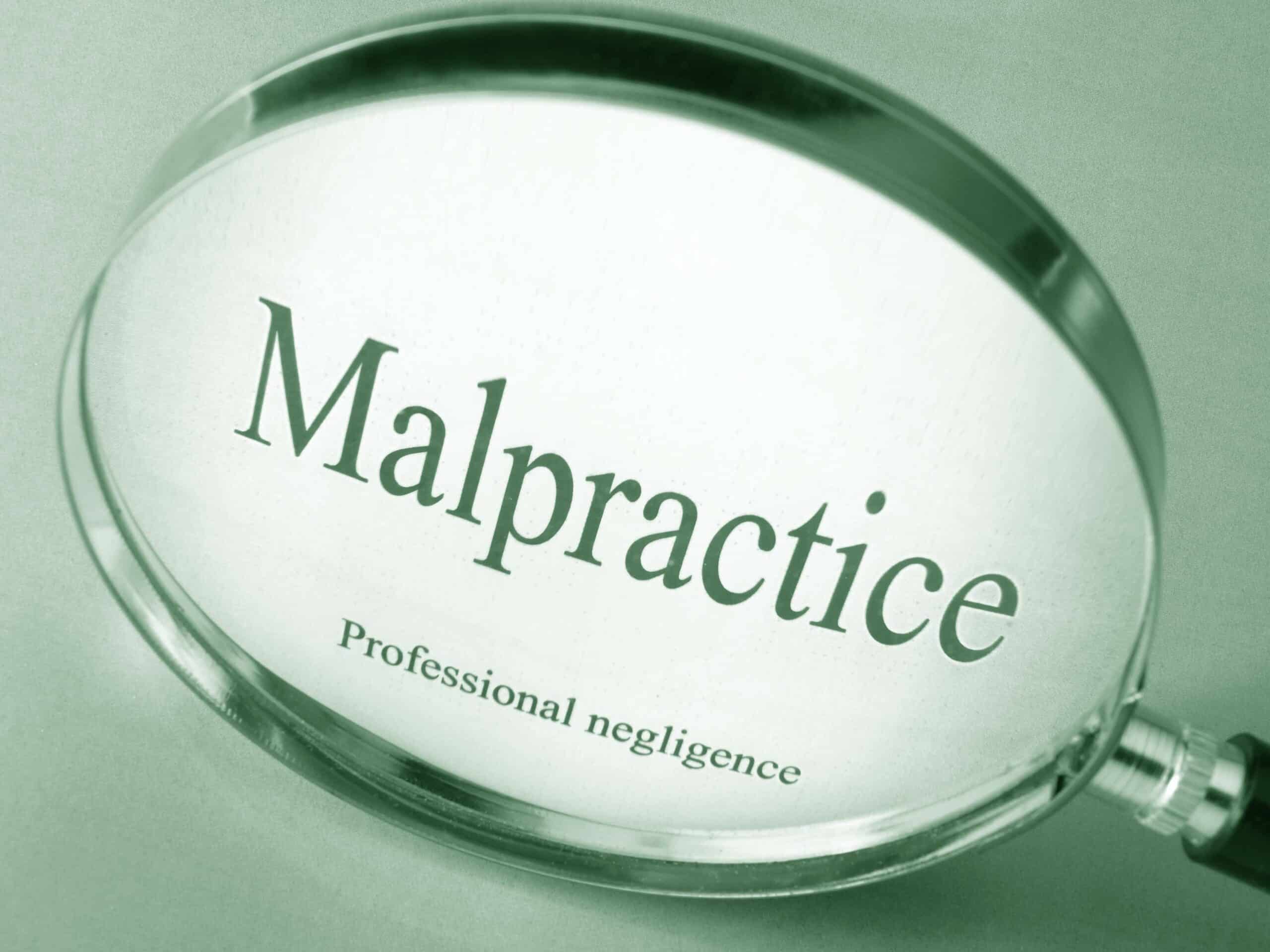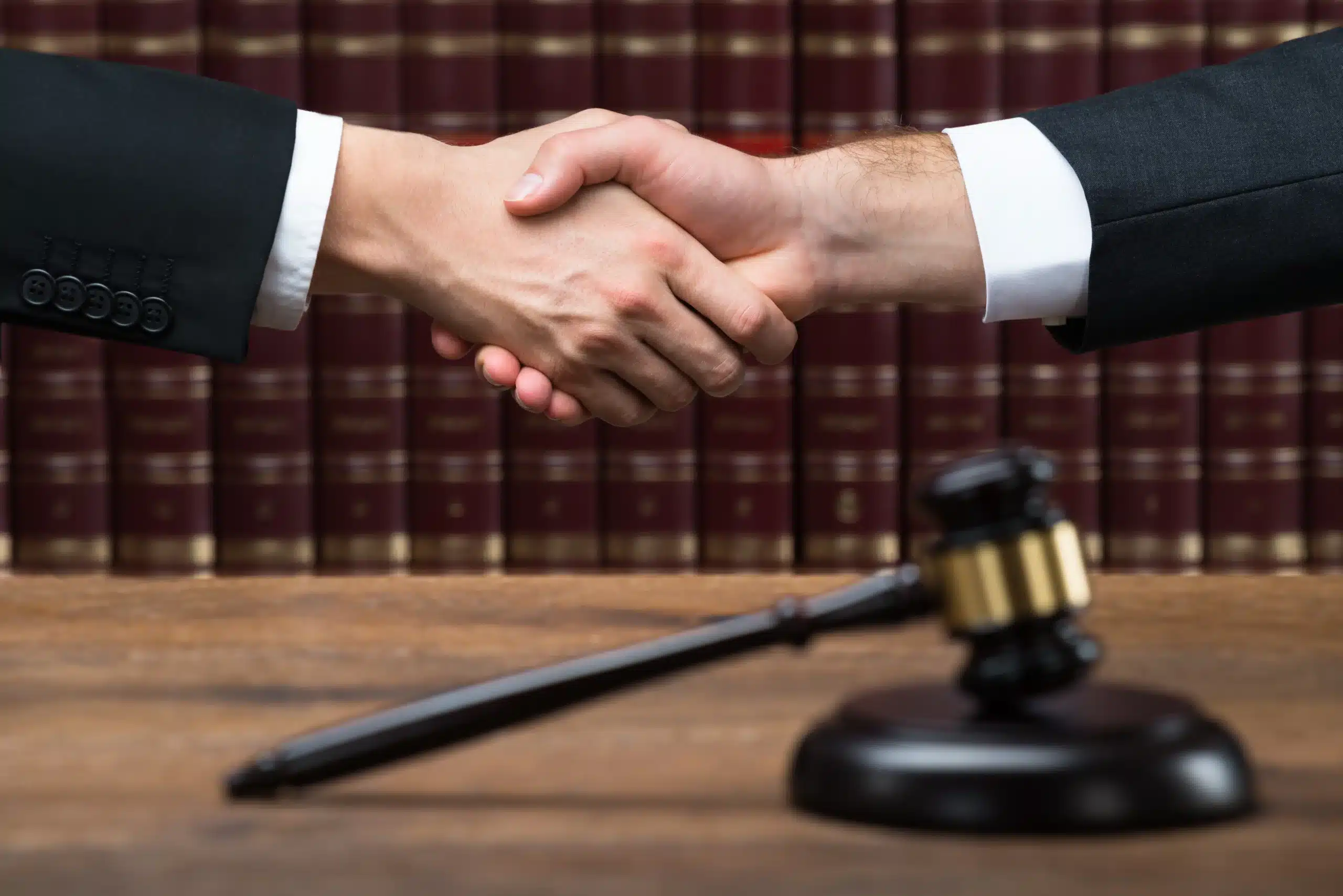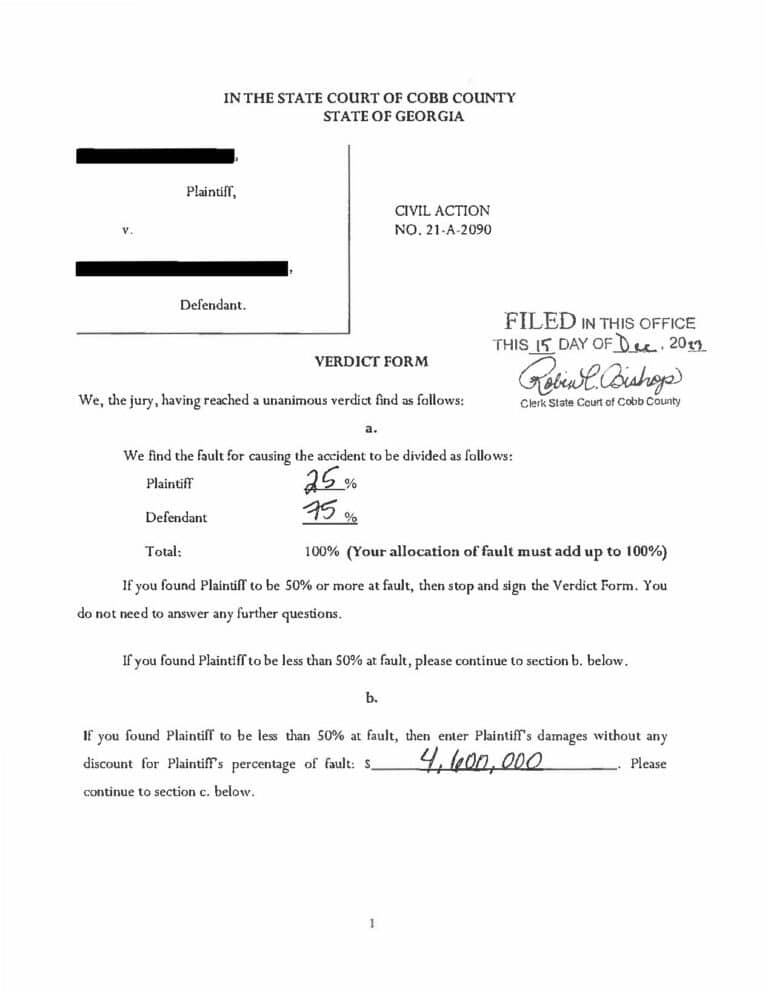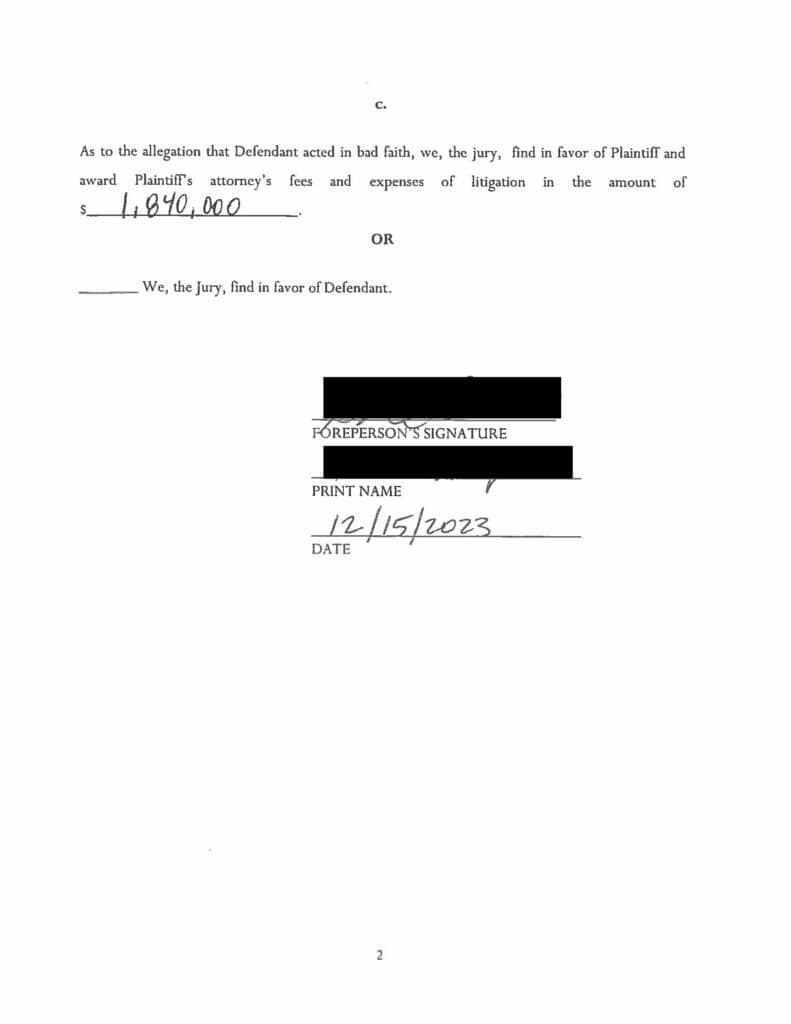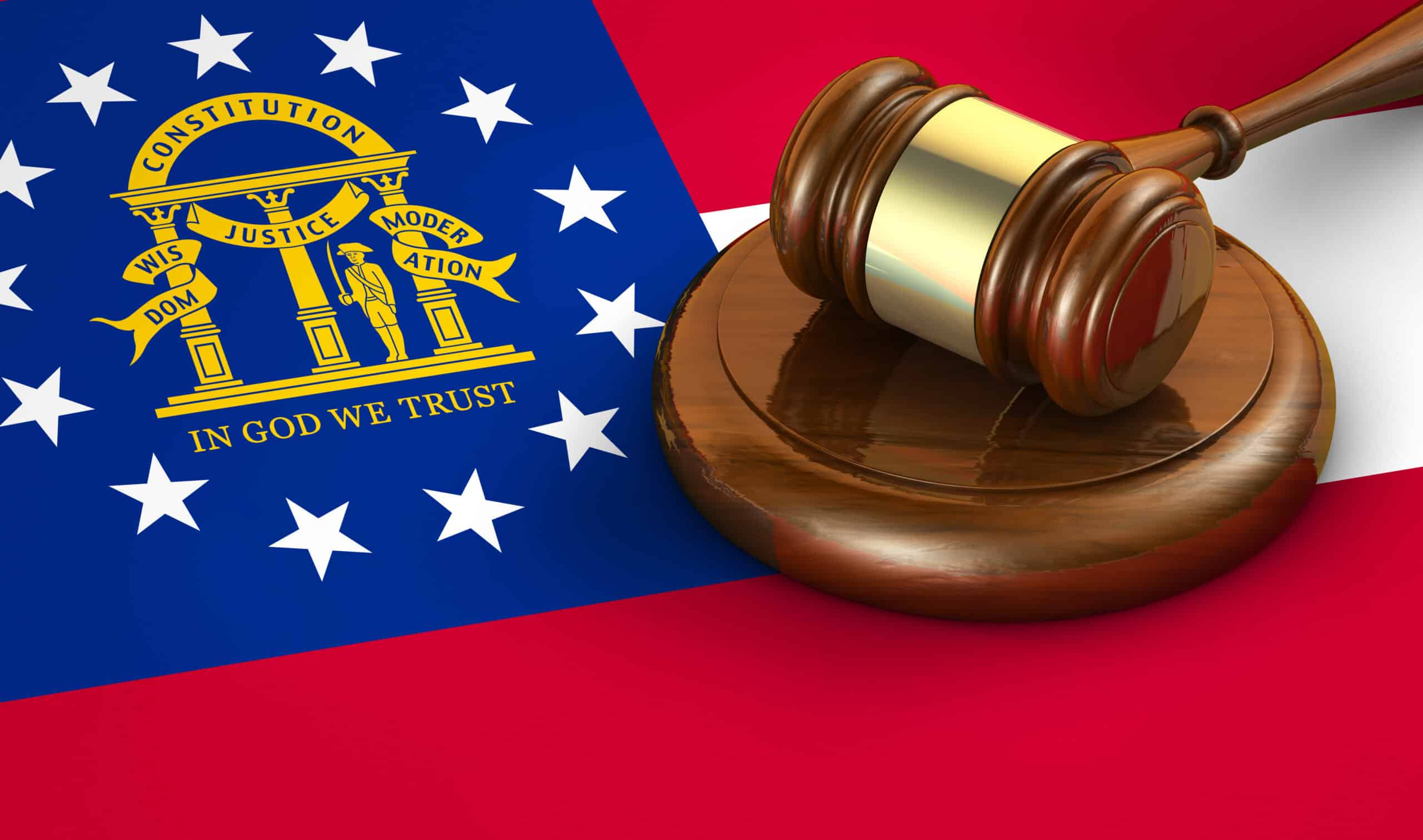Medical malpractice occurs when a doctor, nurse, hospital, or other healthcare provider harms a patient through a negligent act or a failure to act. In simple terms, it’s when a medical professional’s mistake, one that a reasonably skilled and careful professional would not have made, causes you injury. A medical malpractice lawyer can help you understand whether your situation meets this standard.
Understanding what does and does not count as medical malpractice can give you a clear picture of what it takes to hold a negligent provider accountable.
Key Takeaways about Medical Malpractice Claims in Georgia
- Medical malpractice is defined by a healthcare professional’s failure to provide the accepted “standard of care,” resulting in patient injury or death.
- A successful claim in Georgia must prove four key elements: a duty was owed to the patient, that duty was breached, the breach directly caused an injury, and the injury resulted in specific damages.
- The “standard of care” refers to the level of competence and skill that a similar, prudent medical professional would have provided under the same circumstances.
- Examples of medical malpractice include misdiagnosis, surgical errors, medication mistakes, and birth injuries.
- Georgia law sets strict deadlines, known as the statute of limitations and statute of repose, for filing a medical malpractice lawsuit.
Understanding the “Standard of Care” in Georgia

The Four Elements You Need to Prove a Medical Malpractice Claim
To move forward with a medical malpractice claim in Georgia, you can’t just say a mistake was made. The law requires you to prove four specific things. Think of them as the four legs of a table—if one is missing, the whole thing falls apart.Duty
First, you must show that the healthcare provider owed you a “duty of care.” This is usually the easiest part to establish. A duty is created the moment a doctor-patient relationship is formed. When you seek treatment from a doctor, and they agree to treat you, a professional duty of care is automatically established. They have accepted the responsibility to provide you with competent medical care.Dereliction (or Breach) of Duty
This is the core of a medical malpractice case. Here, you must prove that the doctor or hospital failed to meet the established standard of care. This is the “negligence” part of the equation. It means the provider did something that a competent provider wouldn’t have done, or they failed to do something they should have done. A breach isn’t just a simple mistake; it’s a departure from accepted medical practice. For instance, leaving a surgical sponge inside a patient or prescribing a medication despite a clear allergy noted in the patient’s chart are clear breaches of duty.Direct Cause (Causation)
Next, you have to connect the dots. You must show that the provider’s breach of duty was the direct and proximate cause of your injury. Proximate cause is a legal term that means the harm was a foreseeable result of the negligent action. It’s not enough that a doctor made a mistake; that specific mistake must be the reason you were harmed. For example, if a doctor failed to diagnose cancer but the patient’s outcome would have been the same even with a timely diagnosis, causation may be difficult to prove. However, if the delayed diagnosis allowed the cancer to spread, making treatment far more difficult and a full recovery less likely, then causation is much clearer.Damages
Finally, you must prove that you suffered actual harm, or “damages,” as a result of the injury. Damages are the law’s way of measuring the losses you have sustained. Without provable damages, there is no case. These can include a wide range of losses, both economic and non-economic.- Economic Damages: These are the tangible financial losses you’ve incurred. This includes things like additional medical bills to correct the error, lost wages from being unable to work, and the cost of future medical care or rehabilitation.
- Non-Economic Damages: These are the intangible losses that don’t have a precise price tag but are just as real. This covers things like physical pain and emotional distress, mental anguish, permanent disability or disfigurement, and loss of enjoyment of life.
Common Examples of Medical Malpractice
Medical malpractice can happen in any healthcare setting, from a family doctor’s office in Kennesaw to a major surgical center. While every case is unique, many fall into several common categories.- Misdiagnosis, Missed Diagnosis, or Delayed Diagnosis: This is one of the most frequent types of medical errors. It happens when a doctor incorrectly diagnoses an illness, fails to diagnose it at all, or takes too long to arrive at the correct diagnosis. When conditions like cancer, stroke, or heart attacks are missed, the consequences can be devastating.
- Surgical Errors: Mistakes made in the operating room can have lifelong effects. These “never events”—errors so serious they should never happen—include operating on the wrong patient, performing the wrong procedure, operating on the wrong body part, or leaving surgical instruments or sponges inside a patient’s body.
- Medication Errors: A mistake at any point in the medication process can cause serious harm. This includes a doctor prescribing the wrong drug, a nurse administering the wrong dose, or a pharmacist filling a prescription incorrectly.
- Anesthesia Errors: Anesthesiologists have a critical job, and even a small mistake can lead to brain injuries, coma, or death. Errors can include giving too much or too little anesthesia, failing to monitor a patient’s vital signs, or using defective equipment.
- Birth Injuries: Negligence during pregnancy, labor, or delivery can cause serious and permanent injuries to a newborn, such as cerebral palsy or Erb’s palsy. These cases can result from a failure to monitor fetal distress, improper use of forceps or vacuum extraction, or a delay in ordering a necessary C-section.
What Steps Can You Take If You Suspect Medical Negligence?
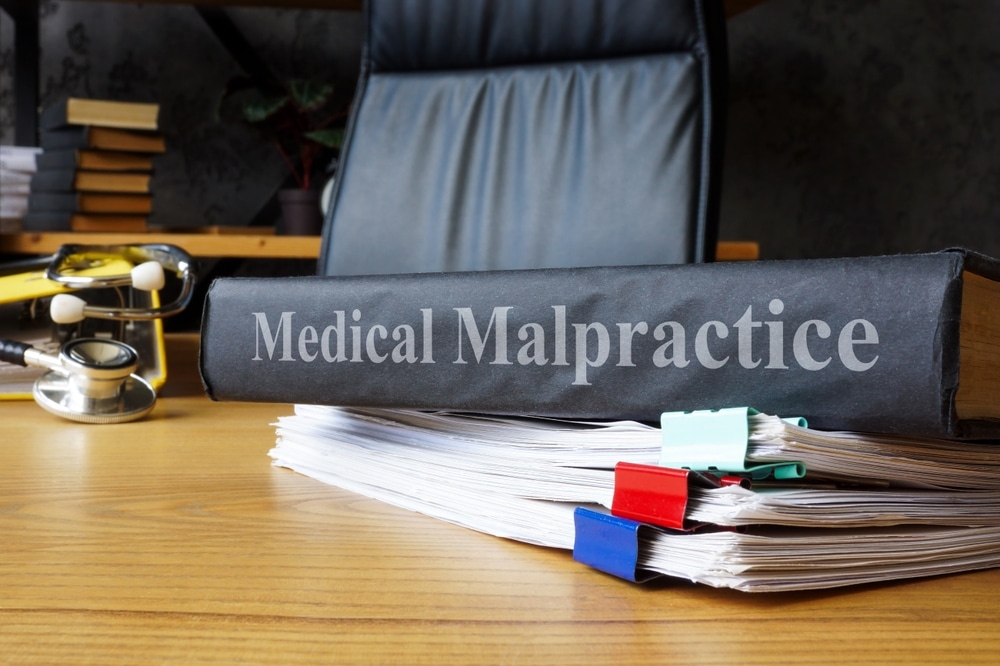
- Get a Second Opinion: The most important step is to ensure you are getting the proper medical care now. See another doctor who is not affiliated with the one you suspect of negligence. This will help you understand your current health status and what treatment you need moving forward. It can also confirm whether your previous care was appropriate.
- Request Your Medical Records: Under federal law, you have the right to obtain copies of your medical records. Contact the hospital or clinic’s medical records department and request a complete copy of your file. These documents contain the detailed story of your treatment and are essential for evaluating what happened.
- Keep a Detailed Journal: Memory can fade over time, so it’s a good idea to write everything down. Document your symptoms, pain levels, and any limitations on your daily activities. Note all medical appointments, conversations with doctors, and medications you are taking. This personal record can be incredibly valuable.
Georgia’s Time Limits for Filing a Medical Malpractice Claim
One of the most critical things to understand about medical malpractice in Georgia is that you have a limited window of time to take legal action. This deadline is set by a law called the statute of limitations. A statute of limitations is a law that sets a strict time limit on your right to file a lawsuit in civil court. In Georgia, the general rule for medical states that you must file a claim within two years from the date the injury or death occurred. Georgia also has a second, stricter deadline called the statute of repose. This is an absolute deadline that says no claim can be filed more than five years after the date of the negligent act, regardless of when you discovered the injury. There are very few exceptions to this rule. Because these deadlines are so strict and can be complex, it is crucial to understand how they apply to your situation. If you miss the deadline, you may lose your right to seek compensation forever.How a Georgia Medical Malpractice Attorney Can Help Navigate the Process
Navigating a medical malpractice claim is an incredibly complex process filled with legal hurdles and medical jargon. An attorney who handles these types of cases can help you understand your options and guide you through each step. Research from institutions like Johns Hopkins Medicine suggests that medical errors are a significant public health issue, and addressing them requires a thorough understanding of both medicine and law. A legal team can take on the burden of the process, allowing you to focus on your health and recovery. Here are a few ways an attorney can assist:- Investigating Your Claim: They will conduct a deep dive into the facts of your case, gathering medical records, and identifying exactly what went wrong.
- Consulting with Medical Reviewers: To prove your case, you need testimony from other medical professionals. An attorney will work with qualified reviewers in the appropriate field to determine if the standard of care was breached.
- Filing the Right Paperwork: Georgia has specific procedural requirements for malpractice cases, including filing an “affidavit of merit” along with the lawsuit. This is a sworn statement from a medical professional confirming that there is a basis for the claim.
- Dealing with Hospitals and Insurers: They will handle all communications with the healthcare provider’s legal team and their insurance company, advocating for your best interests.
Medical Malpractice FAQs
Here are answers to some common questions people have when exploring this topic.Yes, in many situations, a hospital can be held responsible for the negligence of its employees, such as nurses, technicians, or staff doctors. This legal concept is called vicarious liability or “respondeat superior,” which means the employer is responsible for the actions of its employees while they are on the job. A hospital can also be held directly liable for its own negligence, such as failing to properly screen its staff or not having adequate policies in place to promote patient safety.
Most personal injury attorneys who handle medical malpractice cases work on a contingency fee basis. This means you do not pay any upfront fees to the lawyer. Instead, the lawyer’s fee is a percentage of the financial compensation they recover for you, whether through a settlement or a court verdict. If you do not win your case or receive a settlement, you do not owe the attorney a fee.
Signing a consent form is standard practice before most medical procedures. In it, you acknowledge that you have been informed of the known risks, benefits, and alternatives to the treatment. However, a consent form is not a waiver of your right to competent care. It does not give a doctor permission to be negligent or make a preventable mistake. You are consenting to the known risks of a procedure, not to harm caused by a failure to meet the standard of care.
Get the Answers and Support You Deserve

